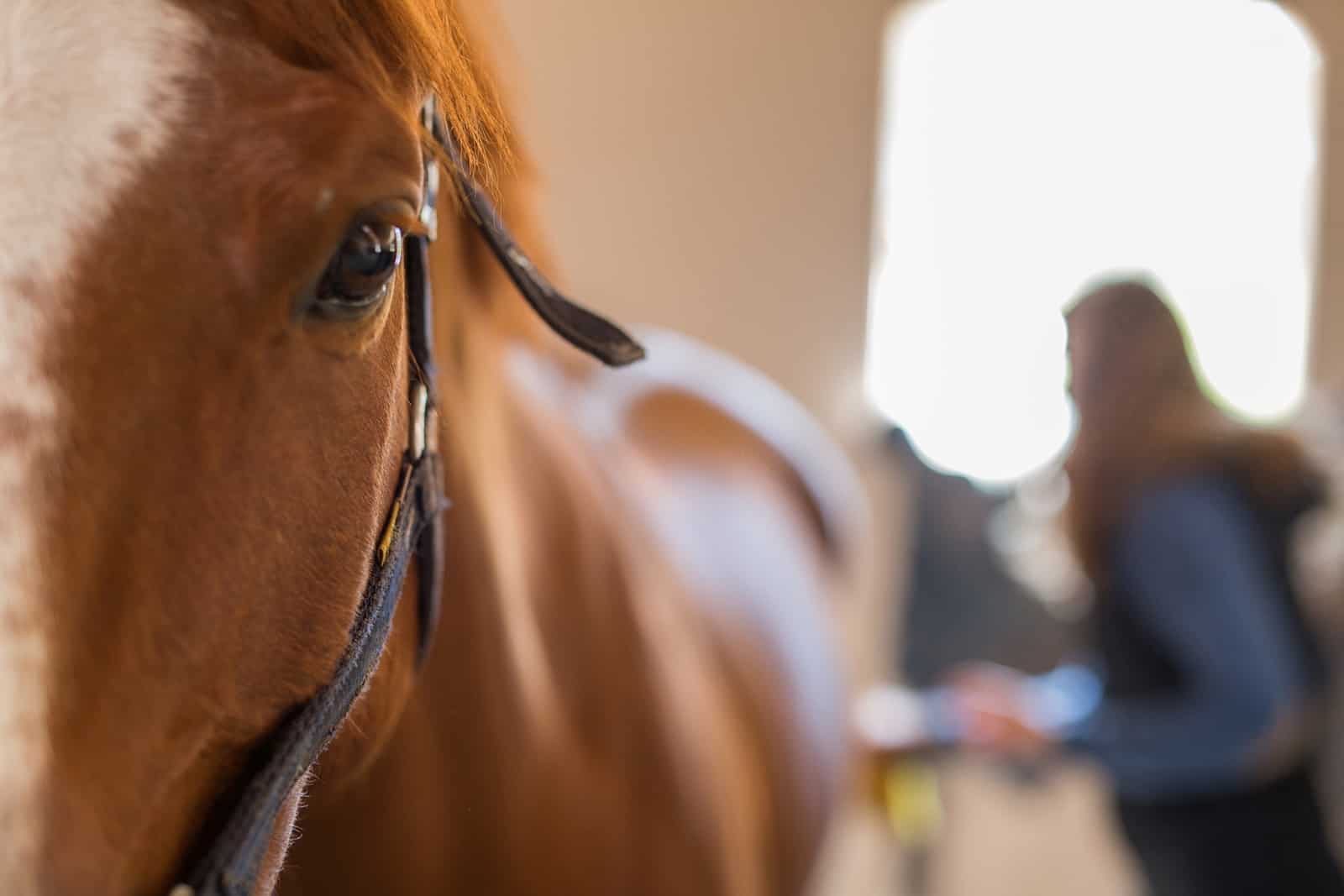Body Language in Horse and Human Interactions

Having good communication through body language with your horse can lead to a stronger relationship, heightened safety, and better training and performance. And when scientists keep horse-human body language in mind, it can also improve research results.
“Horses living in close contact with people learn to recognize human body language, whether they are aware of it themselves or not,” said Jan Ladewig, DVM, PhD, professor in Animal Welfare and Ethology at Copenhagen University’s Department of Large Animal Sciences, in Denmark. He gave a plenary talk on horse-human body language communication during the 2017 International Society for Equitation Science Conference, held Nov. 22-26 in Wagga Wagga, Australia.
Regardless of species, individuals show body language when they intend to do something, though they’re often unaware of it themselves, Ladewig said. This very subtle movement—often consisting of just a tension of muscles—before an intended action is referred to as “intention movement.” And while we might not necessarily be observant enough to pick up on it, horses are
Create a free account with TheHorse.com to view this content.
TheHorse.com is home to thousands of free articles about horse health care. In order to access some of our exclusive free content, you must be signed into TheHorse.com.
Start your free account today!
Already have an account?
and continue reading.

Written by:
Christa Lesté-Lasserre, MA
Related Articles
Stay on top of the most recent Horse Health news with











